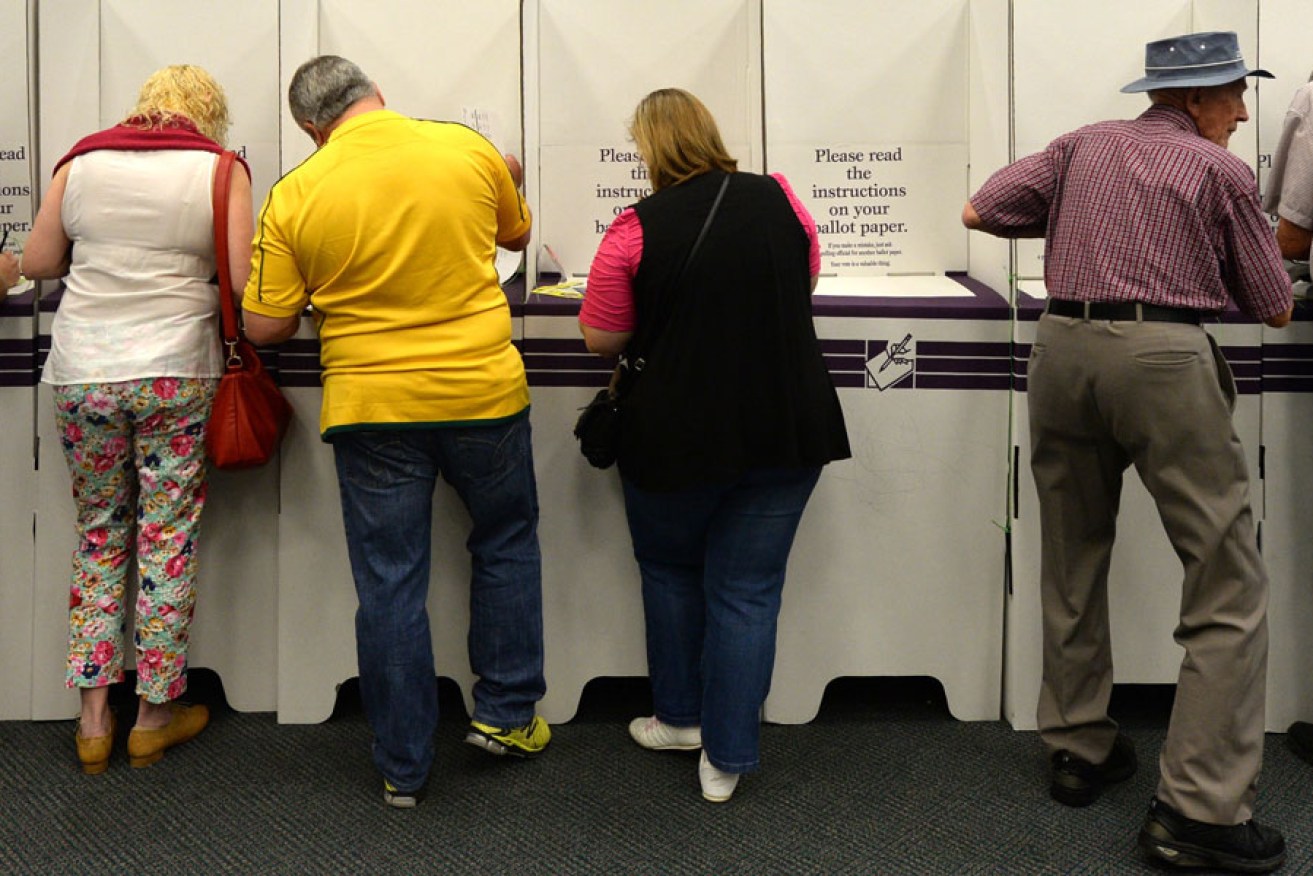Council voting: if it ain’t broke, don’t fix it

Voters at polling booths. Photo: AAP.
During the past week or so various political experts and mayoral candidates puzzled over the apparent problem of lower than normal voter turnout in local government elections.
Some mayoral candidates argued for compulsory voting, the Premier reckoned coupling local and state polling days might work and Professor Macintyre told InDaily that voter ‘disaffection with the political processes’ explained the apparent decline.
Advertiser columnist David Penberthy suggested voters were ‘simply electioned out’, that candidates lacked transparency and, to add some icing to the cake, chastised ‘councils for not giving people a compelling enough reason to vote’.
I’m not convinced by these explanations and nor do I see much evidence of a problem with voter turnout as it was not, in the end, down by much. Frankly, those of us who live and breathe political life should stop worrying about voter turnout.
The current level is, democratically speaking, sufficient to hold council management in check and ensure constituents interests are prosecuted by their elected councillors.
There are no remedies for fostering voter interest in local government for the simple reason that the political, economic, social and environmental “stakes” are relatively low in comparison with State and national election campaigns.
Voter turnout over the past three weeks appears well within the norm, namely a quarter to one third for metropolitan Adelaide. Given the relatively limited political scope for issue differentiation within local government it’s worthwhile to make this comparison. Voluntary voting for something as politically weighty as national elections in the UK sees 60% or so turnout and in the USA the figure is around 40%.
Viewed in this light, and without downplaying the dedication of all those who participated as candidates over the last few weeks (and that includes my wife), the ‘low stakes’ nature of local government is never going to attract widespread public interest.
Introducing online voting, or coupling voting with State elections, will not change the turnout equation. Nor should we embrace Penberthy’s idea that somehow councils ought to give us more reason to vote. This worries me given that the times when your council might give you ‘compelling reasons’ to vote normally arises when it falls into brawling internal dysfunction or have hiked up rates.
The donkey and informal vote would soar if compulsion was introduced, plus many voters would face fines for not voting – hardly means for encouraging interest in politics.
Alas, a decade ago I used to pay rates to Burnside Council and, as reports of dysfunction emerged, exercising one’s right to vote certainly appealed but that’s hardly recommended as a remedy for ‘voter apathy’.
Compelling us to vote in council elections would simply unnecessarily irritate the vast majority who don’t see the point, in their busy lives, to ponder candidates’ ‘vote for me’ statements. The donkey and informal vote would soar if compulsion was introduced, plus many voters would face fines for not voting – hardly means for encouraging interest in politics.
For mine, the current system of postal voting appropriately invites voters to take their time to assess the mayoral candidates and the bigger fields that normally, and in some instances, hotly contest the wards.
Over the past three weeks the SA Electoral Commission reported daily the rate of postal vote returns for all wards, and I’ve been a keen observer. There was no early rush as I’d expected but rather a steady trickle. That’s actually impressed me as I surmised that those interested enough to vote took their time to deliberate upon their choice and no doubt in many instances discuss matters with family and friends.
Consequently it’s fair to conclude that the combination of voluntary and postal voting works well because it matches the gravity of politics surrounding local government with the nature of candidate choice on offer.
Of course the inherent wastage of postage and printing involved is bemoaned. But coupling state and local government elections would be a logistical nightmare as every polling station would be required to supply ballots for every council mayoral and ward contest! Yes, that is correct – for if you wanted to do an absentee vote the polling station must supply a ballot.
More electoral staff would be required and the risk of slowing the flow of voters through polling stations is real. Nevertheless it is worth looking at, especially if absentee voting for local government was disallowed but, on balance, I like the way postal voting for local government links to the period when candidates intensify their campaigns. That would be entirely lost in the noise of the state election and diminish significantly the importance of voter deliberation on the grass roots issues that inform local government elections.
Haydon Manning lectures in the School of Social and Policy Studies at Flinders University.




